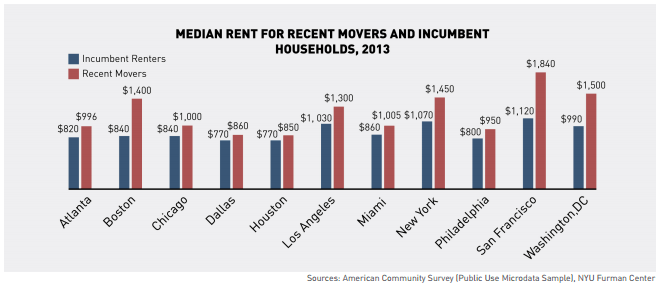Advertisement
In Boston, Renters (And Rents) Are On The Rise But Available Units Are Not, Report Finds
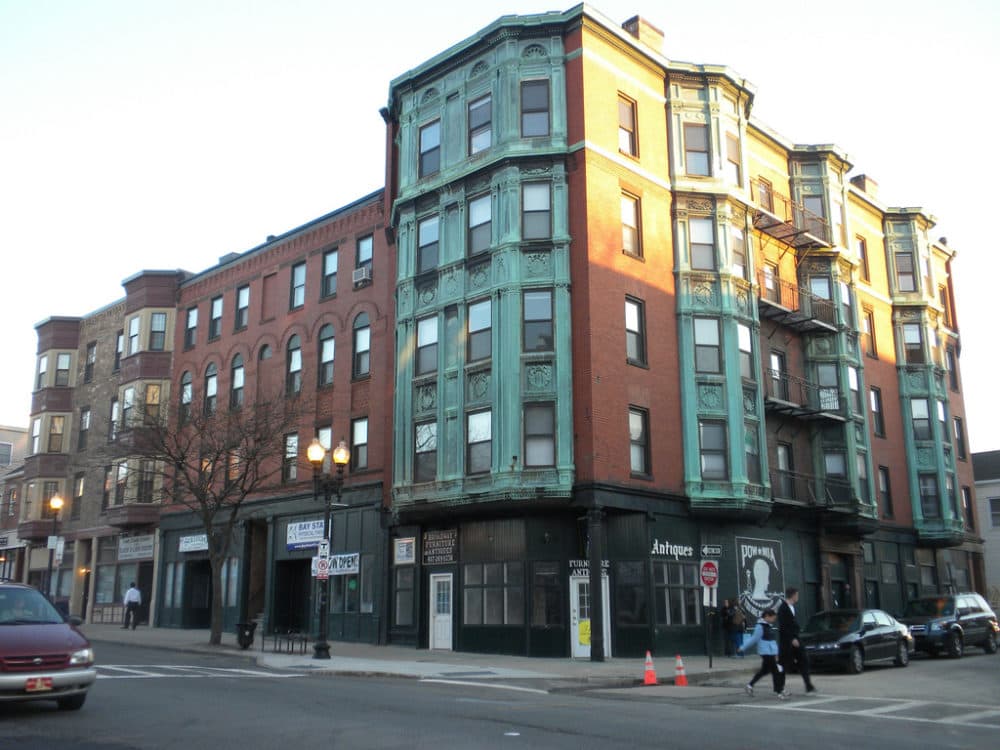
We all know looking for an apartment in Boston well ... sucks, and it's becoming even more difficult, according to a report by New York University's Furman Center, which studies urban policy and housing.
That's because the number of renters in Boston has risen rapidly in recent years, while the number of available rental units has dropped, the report found.
The study, commissioned by Capital One, analyzed census data from 2006 to 2013 for the nation's 11 largest cities — Boston, Atlanta, Chicago, Dallas, Houston, Los Angeles, New York City, Miami, Philadelphia, San Francisco and Washington, D.C. The initial findings of the study were released back in February, but an in-depth analysis of each city was released Thursday, according to Capital One.
Overall, the study found a boom in the rental population in all 11 cities, with nine (all but Philadelphia and Atlanta) seeing double digit increases in the number of renters from 2006 to 2013. The study also found that while rents are rising, wage growth isn't keeping up everywhere and many people are paying unaffordable rents — especially low-income renters who the report found to be "severely rent-burdened" in all cities (meaning they spend 50 percent or more of their income on rent.)
Sixty percent of Boston's population lives in rental units, according to the report. And from 2006 to 2013, that rental population grew by about 23 percent while the number of rental units grew by only 15 percent — contributing to the scarcity and high demand for rental housing — the study found. The vacancy rate in Boston dropped from 5.5 percent in 2006 to 3.5 percent in 2013 — the third lowest rate of all cities — according to the study. The number of units available for rent fell in all cities, except Miami and Washington, D.C., the report found.
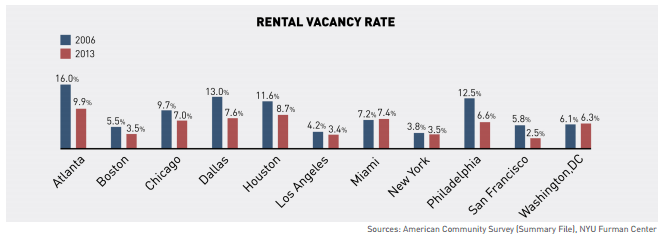
The study also looked at housing affordability and found incomes for renters in Boston grew at a faster rate than rent — unlike most other cities. The median monthly rent in Boston increased by about 4 percent from 2006 ($1,216) to 2013 ($1,263), while the median household income for renters grew by 15 percent from 2006 ($34,934) to 2013 ($40,065), according to the study.
Meanwhile, rents rose significantly in other East Coast cities (21 percent in Washington, D.C., 12 percent in New York, and 8 percent in Philadelphia), while incomes in those cities decreased or remained unchanged, the report found. Only two cities other than Boston — Chicago and Houston — had income increases.
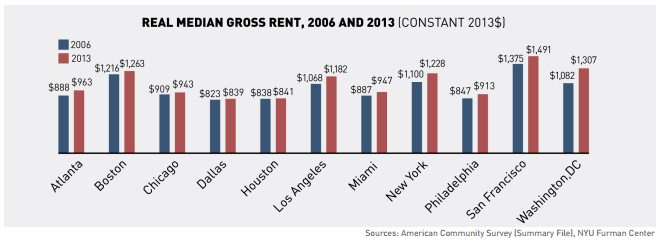
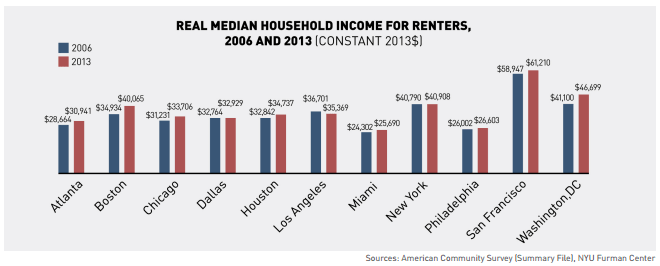
While incomes for renters in Boston increased, the report found that housing remains a significant challenge for low-income renters. This was also true for all other cities, where the report found a majority of low-income renters spend more than half their income on rent. In Boston, nearly 60 percent of low-income renters were "severely rent burdened" or spent more than half their income on rent in 2013 — an increase of almost 6 percentage points from 2006 — the report found. Compared to other cities, Boston had the lowest share of low-income renters who were "severely rent burdened" — Chicago and Los Angeles had the highest share at 78 percent. Meanwhile, the number of moderate-income renters who were "severely rent burdened" in Boston decreased by about 7 percentage points from 2006 to 2013, the study found.
The report also found another challenge for low-income renters: Many cannot afford newer rental units that become available in the market. According to the study, the number of rental units affordable to low-income renters increased by 1 percentage point from 2006 to 2013. Meanwhile, the amount of rental units affordable to moderate-income increased by more than 6 percentage points in the same time period, the report found. Low-income renters in Boston could afford about 11 percent of the rental units in 2013, according to the study.
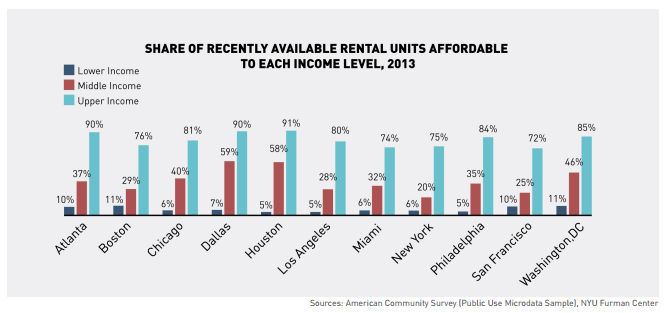
The study also looked at the amount of rent paid by tenants who recently moved versus tenants who had lived in the same place for more than five years. Boston had the highest difference in rents between these groups. In 2013, median rent for units that had been available within the last five years was 70 percent higher than the median rent for units whose occupants had lived there for more than five years, the report found. Meaning those who have lived in the same place for a while would probably struggle to find a similarly affordable apartment if they had to move.
